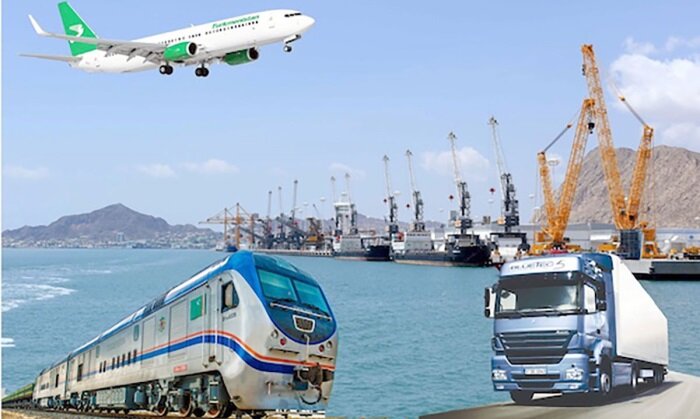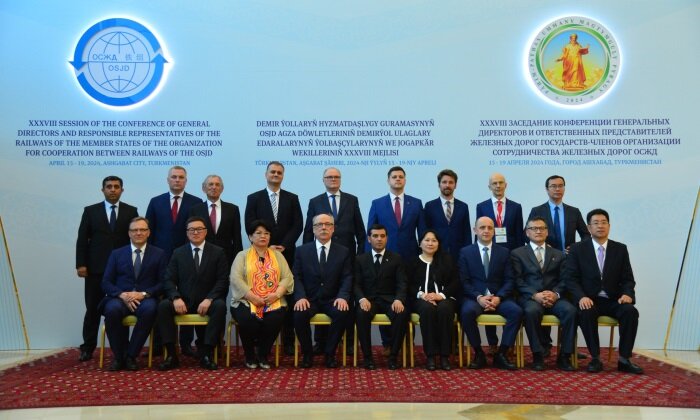The expert explained how the Republic had become dependent on the creditor nations.
 In May, the Ministry of Economic Development of Uzbekistan signed an agreement with the World Bank. The international financial institution will give the Republic US$ 289 million in concessional loan.
In May, the Ministry of Economic Development of Uzbekistan signed an agreement with the World Bank. The international financial institution will give the Republic US$ 289 million in concessional loan.
On the one hand, this can yield benefits to the country, because the money will be spent on water and sewerage services for the population. In addition, such a big sum of money can speak of high trust in Tashkent and the successful liberal policy of President Shavkat Mirziyoyev. However, ‘the coin has the other side’. A political scientist Bakhrom Khamroev noted in his interview with CentralAsia.news that the Republic started taking loans too often. Under the current leader, Uzbekistan’s external debt is growing at a devastating pace.
The bill over billions
As for loans, everyone should understand that no one lends money for altruistic reasons. “The lender always expects to get profit, control or other benefits from borrowings,” the interlocutor emphasised. The borrower of loans will surely face the moment of reckoning.
For all his faults, ex-President of Uzbekistan Islam Karimov understood it perfectly well. Karimov, who had independence of Uzbekistan at any cost as his abiding priority, sought to minimise debt relations with foreign players, and, if possible, live on his own. “As a result, Shavkat Mirziyoyev took over the country with a debt of only US$ 5 billion,” Khamroev said.
According to the human rights activist, the current leader has led the country in the opposite direction. For almost 5 years of Mirziyoyev's presidency, Uzbekistan’s external debt has grown to US$ 32 billion. The expert said the priority was not to ensure independence, but to manoeuvre among major players and rampantly take loans under the pretext of the need to search for money to solve the problems bequeathed by the former ruler.
An obscure strategy
Bakhrom Khamroev made it clear that the main problem lay not in Tashkent’s addiction to loans.
“The state has no coherent strategy of political and economic reforms, the conditions for sustainable economic development do not exist and the economy lacks large-scale and ambitious projects. To put it mildly, all this raises doubts about the ability to effectively use huge loans, spend them on economic growth and pay back with interest,” the political scientist said.
The interlocutor believes that the authorities of Uzbekistan borrow large amounts of credit funds, but they have only a temporary effect. The population sees some economic achievements, which increases the rating of the head of state. At the same time, the Republic’s long-term development is being undermined. Khamroev explains that the burden of repayment will be inherited by today’s youth, and will affect Mirziyoyev’s government in no way. The expert believes that the actions of the current leader testify to the absence of a high priority of independence of Uzbekistan, as it was under Karimov.
Levers of influence
The lenders, who are able to give Uzbekistan huge amounts of money, hope to benefit. Khamroev has no doubts that they are gaining levers of economic and political influence in the region in any case.
“An illustrative example is China that is one of the major creditors of Tashkent. A number of key enterprises have come under the control of Chinese partners. The PRC is taking an active part in developing mineral deposits. Logistics, mainly railway, infrastructure, has come under the control of China as well. It is clear that preferences granted to the Chinese side did not arise out of nowhere. Certainly, Uzbekistan has to look more often at Beijing in political issues, in addition to purely economic issues,” the expert expresses his opinion.
In pursuing their goals, along with China, the United States, EU countries and Russia are ‘racing’ with one another in giving loans to Uzbekistan. The Russian Federation has recently given a $4 billion loan to the Republic.
According to the interlocutor, the more loans one gives, the more money another tends to lend. Khamroev believes that the international players are seeking to increase their involvement and build up their presence in the region through such infusions. However, these states have the sometimes opposing interests.
In this situation, Uzbekistan acts on the principle of ‘a humble calf will feed from two mothers’. “As I have already mentioned, such a strategy can only have a temporary effect. In the long term, it will pave the way of the country for the loss of positions and the coming under the control of external players and every young citizen of Uzbekistan for debt bondage,” Khamroev concluded.






